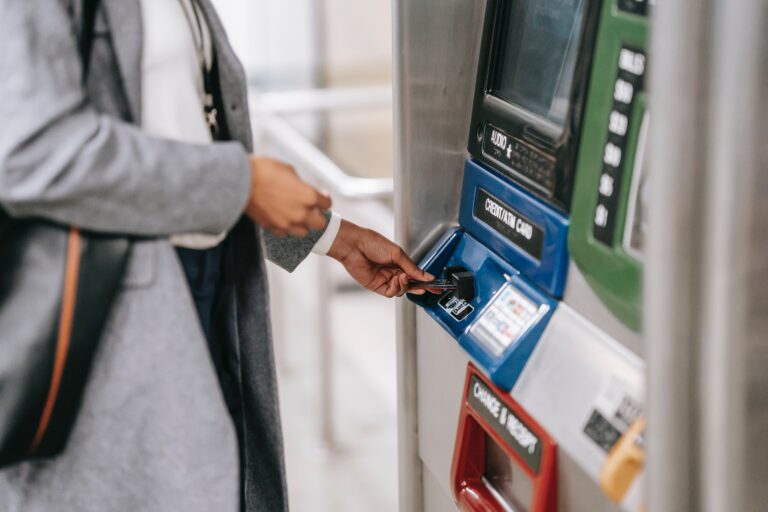Navigating the U.S. banking system as a non-resident can seem overwhelming. Whether you’re an immigrant, an international student, or a foreign worker, accessing dependable banking services is essential. However, not all banks meet the unique needs of non-residents. To help you make informed choices, we’ve analyzed and identified the four best banks for non-residents in the U.S. Keep reading to discover their features, benefits, and how to get started.
Why U.S. Banking Access Matters for Non-Residents
For non-residents, accessing a U.S. bank account opens up numerous opportunities. It helps to:
- Securely manage your income and savings
- Pay bills and make local transactions with ease
- Avoid excessive international banking fees
- Build financial credibility within the U.S.
What to Look for in a U.S. Bank for Non-Residents
When choosing a bank, consider these key factors:
- Account accessibility: Availability of options for non-residents without a Social Security Number (SSN).
- Low or no fees: Watch for hidden costs like maintenance fees or minimum balance requirements.
- Convenient services: Features like online banking, international transfers, and 24/7 support.
- Global-friendly policies: Acceptance of foreign ID or passports as valid documentation.
Now, let’s take a closer look at the four banks that cater to non-residents and excel in these areas.
Top 4 Banks for Non-Residents in the U.S.
1. Chase Bank
Chase is a globally recognized and trusted name with excellent services for non-residents.
Why Choose Chase?
- Requires a government-issued ID or passport for account opening.
- No SSN required for their basic checking account (for international visitors).
- Offers 16,000 ATMs and 4,700 branches across the U.S.
- Their “Total Checking” account has a low maintenance fee of $12/month, which can be waived if requirements are met.
Chase is ideal for non-residents who prioritize a reliable, widespread banking network and excellent customer service.
2. Bank of America
Bank of America simplifies access for non-residents without overwhelming fees.
What Makes Bank of America Stand Out?
- Accepts foreign passports and certain international IDs.
- The “Advantage SafeBalance” account has no overdraft fees.
- Access to Zelle for instant digital transfers within the U.S.
- Comprehensive online and mobile banking services.
This bank offers various account options depending on your needs, whether you’re an international professional or a student.
3. Wells Fargo
Wells Fargo is known for its accessibility and comprehensive services for foreign visitors.
Key Features for Non-Residents:
- Allows account opening without an SSN (a passport is accepted).
- No need for a local credit score, making it easier for recent arrivals.
- Provides branches and ATMs nationwide for easy access.
- Their “Everyday Checking Account” is beginner-friendly, with a manageable monthly fee of $10.
Wells Fargo’s straightforward process and expansive reach make it a dependable choice for non-residents.
4. HSBC
HSBC is a great fit for those seeking international banking connectivity.
Notable Benefits:
- Ideal for non-residents who require global financial connections.
- Accepts international identification, making account setup hassle-free.
- Offers multi-currency account features for easier international transfers.
- Premier account holders gain perks like free global transfers and relationship manager access.
If you plan to move funds between the U.S. and your home country, HSBC’s international banking strength is unmatched.
How to Open a U.S. Bank Account as a Non-Resident
Follow these tips to open an account easily:
- Gather Your Documents: Commonly required items include your passport, visa, proof of address, and immigration documents.
- Choose the Right Bank: Ensure the bank accommodates non-resident clients and allows foreign credentials.
- Visit a Local Branch or Apply Online: While many banks require you to visit in-person, check if your chosen bank offers remote applications.
- Ask Questions: Ensure the account meets your needs for features like international transfers and no hidden costs.
Internal Transfers to Enhance Your Financial Routine
If you’re a non-resident looking for ways to safely manage money transfers to loved ones overseas, making use of a secure money transfer service can help. Check out how to safely send money internationally and avoid delays or high transfer fees.
FAQs
Can I open a U.S. bank account without a Social Security Number (SSN)?
Yes, many banks like Chase, Wells Fargo, and HSBC allow non-residents to open accounts using a passport or foreign identification.
What are the fees for a non-resident bank account?
Fees vary by bank and account type but typically range from $10 to $25 per month. Many banks waive fees if you meet specific criteria, such as maintaining a minimum balance.
Can I send money internationally from my U.S. account?
Absolutely! Most banks allow international wire transfers. However, specialized money transfer services like Remitly may offer lower fees and better exchange rates.
How is my money protected as a non-resident?
All U.S. banks are federally insured by the FDIC, which protects account balances up to $250,000.

